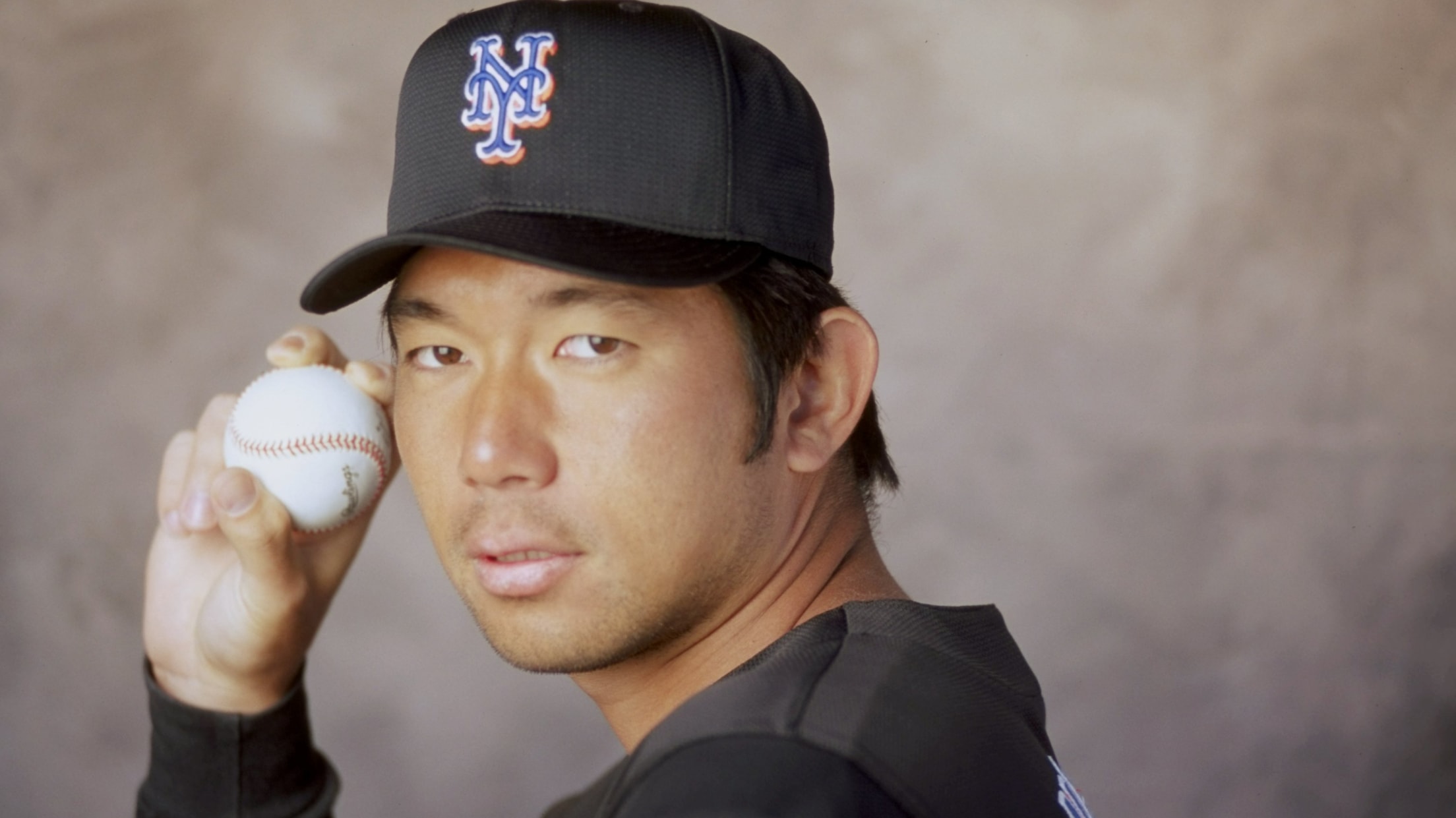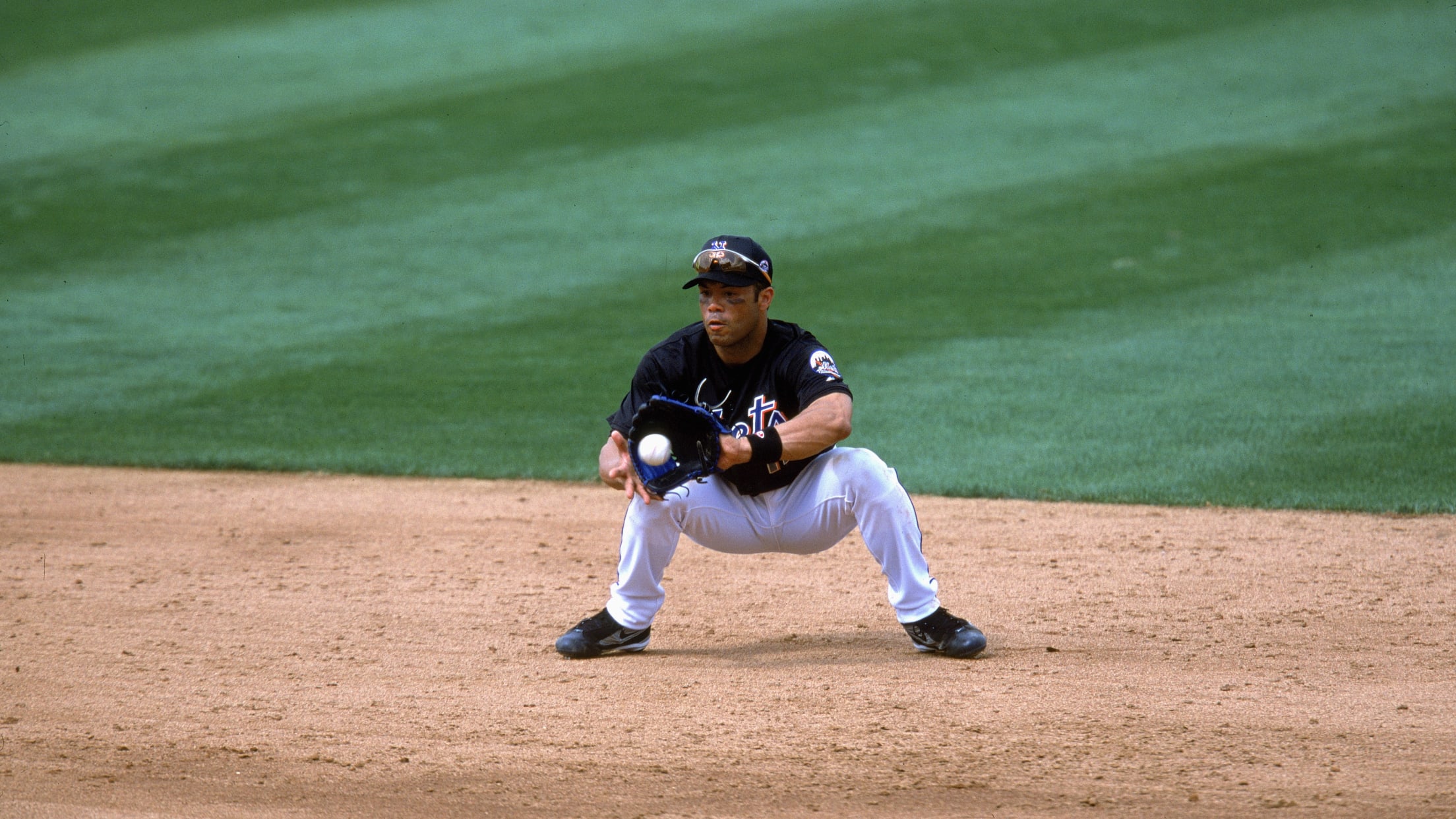Six wildest Mets-Indians trades
The not-quite-ice-cold Hot Stove season got some serious heat when Cleveland sent All-Star shortstop Francisco Lindor and starting pitcher Carlos Carrasco to the Mets in exchange for a bundle of prospects on Thursday afternoon. It was just the latest sign since new owner Steve Cohen took over the Mets that the team in Queens is looking to make things happen.
Though this was his first trade since taking over the team — and putting Sandy Alderson back in charge as team president — it’s far from the first deal between these two teams. In fact, the Mets and Indians have combined to make some of the biggest and strangest deals in baseball history. Let’s look back at six of them.
1. Harry Chiti traded for … Harry Chiti on April 26, 1962
New York got: Harry Chiti
Cleveland got: Cash and … Harry Chiti
One of baseball’s most famous oddities may not have gone down the way it may have been written up in books about baseball’s famous oddities, but it still deserves its spot on the list.
Before the Mets’ first season in 1962 — when they went on to lose a record 120 games — the team was desperate for ballplayers. So, on April 26, they acquired Chiti from the Indians — who themselves had traded for Chiti the winter before from the Orioles — in exchange for cash and what may or may not have been a player to be named later.
Chiti appeared in 15 Mets games and posted a meager batting line of .195/.233/.220. So, the team then returned Chiti to the Indians, sending him straight to their Minor League affiliate in Jacksonville.
While there is some debate over whether the player to be named later was ever part of the deal or not, it doesn’t really affect Chiti’s thoughts one way or another.
“If they don’t know who they want, then what’s the sense of making the trade?” Chiti later said. “There was more to it than that. Cleveland got enough money out of the deal to build a new scoreboard.
April 26, 1962: Catcher Harry Chiti is traded to the @Mets from the @Indians for a player to be named later. Two months later, the @Mets sends Chiti back to Cleveland to complete the deal, making him the first player ever to be traded for himself. #LGM #MetsRewind pic.twitter.com/5aWrbOwDlk
— Mets Rewind (@metsrewind) April 26, 2020
2. Trader Jerry Dipoto gets traded to New York for Jeromy Burnitz in November 1994
Cleveland got: Jeromy Burnitz, Joe Roa
New York got: Paul Byrd, Jerry Dipoto, Dave Mlicki, Jesus Azuaje
Burnitz became a beloved Midwestern slugger, but sadly for Tribe fans, it didn’t happen in Cleveland. Instead, Burnitz posted his best years — including four consecutive 30-plus home run years — with the Brewers.

Meanwhile, the Mets received future Mariners GM Jerry Dipoto (another person not afraid of a trade), Byrd and Mlicki. Byrd was soon shipped to the Braves for Greg McMichael, who was then sent along with Mlicki to the Dodgers for half a season of Hideo Nomo.
Yeah, trades, man — you can deal a lot and basically end up with nothing.

3. The Mets get a future Hall of Famer in 2001
New York got: Roberto Alomar, Mike Bacsik, Billy Traber, Earl Snyder
Cleveland got: Alex Escobar, Matt Lawton, Jerrod Riggan
Seen as a “long shot” by Mets’ GM Steve Phillips but also a “dream” scenario, the Indians finally gave up 12-time All-Star and future Hall of Famer Roberto Alomar in a deal with New York. Alomar, 33 at at the time, was coming off one of the best seasons of his career in 2001. Fans hoped he’d form a dynamic duo with shortstop extraordinaire Rey Ordonez up the middle and provide protection for slugger Mike Piazza at the plate. But Alomar’s numbers dropped precipitously in his first season with the Mets (7.3 bWAR to 0.6!) and he was never his superstar self again.

Lawton, meanwhile, (an OBP darling before it was cool), put up three productive seasons in Cleveland – including an All-Star campaign in ’04.
4. The 12-player three-team deal on Dec. 11, 2008
Seattle got: Mike Carp, Ezequiel Carrera, Endy Chavez, Maikel Cleto, Aaron Heilman, Jason Vargas from Mets; Franklin Gutierrez from Indians
New York got: J.J. Putz, Sean Green, Jeremy Reed from Mariners
Cleveland got: Joe Smith from Mets, Luis Valbuena from Mariners
One of the largest trades ever struck featured 12 players from three teams and it all went down at one Winter Meetings. And somehow, no one really came out ahead.
That winter, the Mets were looking to upgrade their bullpen following a late season collapse that saw the team miss out on the NL Wild Card by one game. So, after inking Francisco Rodríguez to be their closer during the same Winter Meetings, they went out and acquired Putz, then the Mariners closer, to be their setup man.
Meanwhile, new Seattle GM Jack Zduriencik was looking for outfield help for the rebuilding Mariners ballclub. He got that and a whole bunch more in Chavez and Gutierrez.
Unfortunately, neither decision really bore much fruit. Putz got hurt the next year and the Mets lost 92 games, while the Mariners are still trying to reach the postseason for the first time since 2001.
Shockingly, it was the Indians, the team least involved in the deal, who got the most. Though the team released Luis Valbuena before he later found success with the Cubs and Astros before his tragic death in 2018, reliever Joe Smith posted a 2.76 ERA across five seasons with Cleveland from 2009-13.
5. Jay Bruce and The Streak
New York got: Ryder Ryan
Cleveland got: Jay Bruce
Ryan pitched a few decent seasons in the Mets’ Minor League system, but eventually the Mets traded him away as the PTBNL in the Todd Frazier Rangers deal last season. Jay Bruce, though? He hit 8 homers in 50 games during New York’s 2016 Wild Card run. And then, with the Indians, he became the reason why the 2017 team has baseball’s longest win streak:
Without this trade, would baseball history be changed forever? Who can say.
Weirdly, Bruce would sign a one-year deal back with the Mets in 2018.
6. The Mets traded Jeff Kent?
New York got: Carlos Baerga, Alvaro Espinoza
Cleveland got: Jeff Kent, Jose Vizcaino
Carlos Baerga was a three-time All-Star and one of the best second baseman in baseball when the Mets acquired him in 1996. Cleveland wanted to get rid of him because of lifestyle problems, which Mets GM Joe McIlvaine saw as a benefit: “… it takes me back to 1986 when we won the World Series,” he said. “We probably had an awful hard partying team and a team that was a little loose at times. I think Carlos brings a little bit of that. But any time you can get a veteran player like him who has been through it, it’s a big help to a younger team.”
Baerga did get a huge hit two hours after arriving at Shea Stadium, but was never close to what he’d been in Cleveland during his 2 ½ seasons in New York. He’s probably most remembered for being part of this highlight:
Kent was solid for the Mets, but moved mostly to get a young Edgardo Alfonzo into the lineup every day. The 29-year-old was traded to the Giants after the partial season in Cleveland and, then, of course, his career took off – an MVP, five All-Star appearances and the most home runs hit by a second baseman in MLB history.
Matt Monagan is a writer for MLB.com. In his spare time, he travels and searches Twitter for Wily Mo Peña news.
Michael Clair writes for MLB.com. He spends a lot of time thinking about walk-up music and believes stirrup socks are an integral part of every formal outfit.




